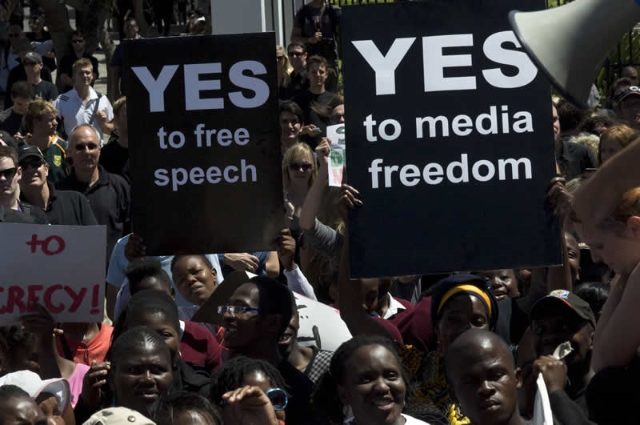A group of seasoned investigative journalists and media freedom activists have called stakeholders in the media to close their ranks, network more and collaborate across borders to counter the growing threat to press freedom in the sub-region.
The call was made during a webinar organised by the Media Foundation for West Africa (MFWA), on May 2, 2023, as part of activities marking the World Press Freedom Day (WPFD). The webinar took stock of the current state of the free expression environment and its impact on human rights. This focus of the webinar was in line with the theme for this year’s celebration – “Shaping a Future of Rights: Freedom of expression as a driver for all other human rights.”
Among the erudite panel were Bettie Johnson Mbayo (freelance journalist), Malick Konaté (Director of Publication, Horon TV, Mali), Liberia), Haruna Salisu Mohammed (Publisher WikkiTimes, Nigeria), Manasseh Azure Awuni (Editor-in-Chief of The Fourth Estate, Ghana), Isidore Kouwonou (Editor-in-Chief, Media L’Alternative, Togo), and Pape Alé Niang (Director of Publication, Dakar Matin, Senegal).
Mali
The panel observed that it has become extremely difficult for journalists in Mali to carry out critical reporting without being viewed as enemies who want to tarnish the reputation of the military regime in power and the country at large. The authorities have suspended a couple of local media organisations, expelled a number of foreign correspondents and reduced the media to silence or praise-singing.
Exploiting the national mobilisation against the rebels, the junta has successfully whipped up patriotic sentiments that make it dangerous to express divergent opinions.
“Most citizens in Mali do not fully understand the role of journalists and they [citizens] generally do not demand accountability so long as they feel that actions taken by the government are to limit foreign interference, or fight terrorism,” Malick Konaté said.
“Journalists who try to get information about government expenditure on military equipment or demand accountability are seen as enemies of the State aiming at destabilizing the transitional government,” he added.
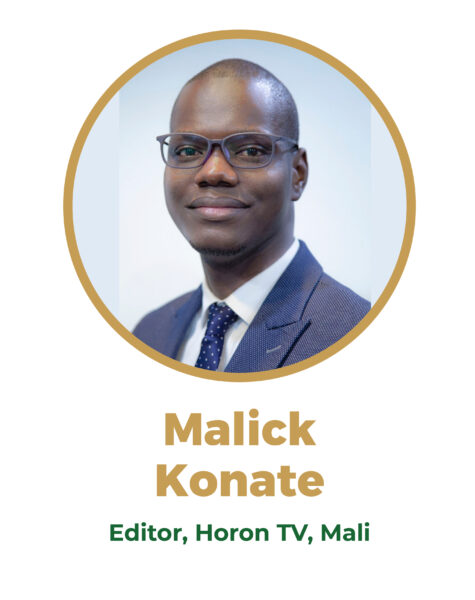
This has created a state of complacency and a climate of tolerance for restrictions, including limiting access to information.
Once a journalist is accused of being an enemy of the transitional government, the military goes after them and subjects them to interrogations. These journalists end up spending several days or months in detention before their cases are dismissed for lack of sufficient evidence. Some are granted conditional release or bail.
“I had to flee Mali about eight months ago [2022] after I became the target of death threats and hate speech,” the journalist declared.
The threats came after Konaté worked with the French television channel BFM TV to produce an investigative story about the presence of the Russian private military company, Wagner, in Mali. He is now perceived as an ally of France and an enemy of Mali because he worked with BFM TV.
Burkina Faso
The media and civil society organisations in Burkina Faso who were on the webinar shared similar challenges as their colleagues in Mali. Just like its Sahel neighbour, Burkina Faso has been destabilised by political upheavals including two military coups in less than a year and a raging jihadist insurgency. Several foreign media have been antagonised, suspended and their correspondents expelled. Crucially, these are done without recourse to the Superior Council for Communication (CSC), the body mandated to regulate the media. The least criticism of the government or the military is brutally repressed, with critics being arrested even on the premises of radio stations.
Liberia
Despite a set of laws that should protect journalists in Liberia, it was observed that critical journalism attracts harassment, threats and attacks. The attacks are usually from or at the behest of powerful people who are unhappy with critical journalism that concerns them or their interests. Politicians, political party thugs and state actors are the dominant perpetrators of attacks against journalists. A panel member, Bettie Johnson Mbayo shared a personal experience where she was prosecuted on the complaint of a politician whom she made several critical stories about. She said the politician seized on a confrontation in traffic to drag her to court.
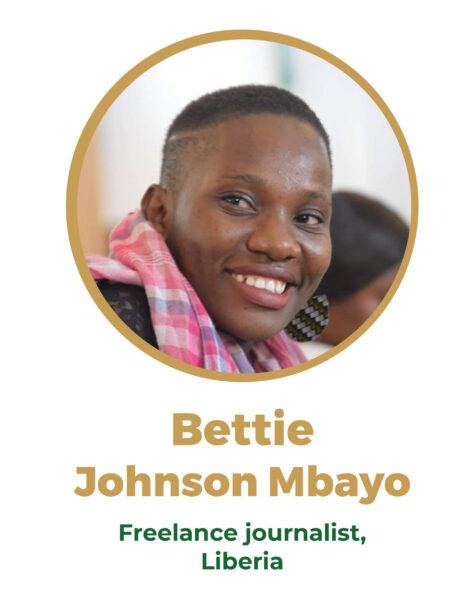
Ms Johnson Mbayo called for “intense public education and engagement with political party leaders on the need to uphold press freedom and prevent vigilante attacks on reporters during Liberia’s upcoming elections.”
Nigeria
Nigeria was identified as a cauldron of perennial repression, with state officials, political party vigilantes and security officials as the leading perpetrators of violations against journalists. The panel decried several attacks on reporters during the February 2023 presidential elections. One of the panellists, Haruna Mohamed Salisu, recounted his arrest and detention and the seizure of his phone while covering the polls.
“Local actors or politicians are always trying to muzzle and gag the press through intimidation, threats or harassment that could take the form of extensive legal actions that are often costly to the journalists or media house” Haruna said.
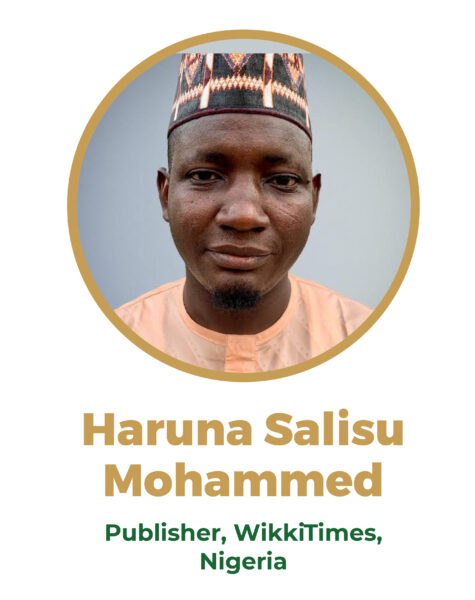
He added that media outlets operating at the grassroots or the subnational levels are disproportionately exposed to harassment because it is very easy for local actors to identify, profile and trail.
Haruna and his online newspaper, the WikkiTimes are facing multiple lawsuits from politicians and business owners as a result of investigative stories they have published. WikkiTimes editorial department is operating from a hideout as a result of threats and harassment.
Ghana
Ghana, has for a long time, been one of the leading democracies in Africa, however, press freedom has been on the decline for the past six years, said Manasseh Azure Awuni. Critical journalists are also often attacked physically or threatened. As a result, journalists usually face mental health issues due to the psychological and emotional effect of these abuses. The journalist gave an example of how he and his family were forced to flee Ghana in 2019 for their safety.
“The biggest challenge is when you face these threats and the state cannot even protect you,” Manasseh deplored as emphasized on the need to protect journalists whose rights are abused.
Journalists are therefore more concerned about their safety when they realise that there would be no justice for them even if they put their lives on the line.
Togo
The media sector in Togo is in critical condition, with critical journalism almost non-existent as a result of hostility from the government, its business allies and, unfortunately, the media regulator, the Haute Autorité de la Communication (HAC). At the least opportunity, the HAC sanctions journalists and media outlets with suspensions, often upon complaint by powerful people. Isidore Kouwonou, editor of L’Aternative newspaper, shared a recent experience that forced him out of the country. On March 15, 2023, the High Court of Lomé sentenced him and his director of publication, Ferdinand Ayité, to three years in prison each. The court also convicted the two to a fine of 3 million CFA Francs (about $5000). The two were sentenced in absentia. They were accused of defaming two Ministers of State. The third accused, Joel Egah, who was dead at the time of the sentencing, was given a posthumous prison term. Kouwonou said the repression is so intense many journalists have abandoned the profession.
Senegal
Just like Ghana, Senegal’s press freedom credentials have been dented by recent cases of arrests and detentions of journalists by the authorities. Pape Ndiaye of Walf TV has been in detention for more than two months, and investigative journalist, Babacar Touré of Kewoulo TV, was recently detained and released. Before them, the managing editor of Dakar Matin, Pape Ale Niang, who was on the panel, was arrested twice in November and December 2022 for commenting on a politically sensitive court case.
“I was kidnapped in town as I went to fix a puncture. I was released after 61 days in detention thanks to massive support and advocacy led by international and national media actors as well civil society organisations” Niang said.
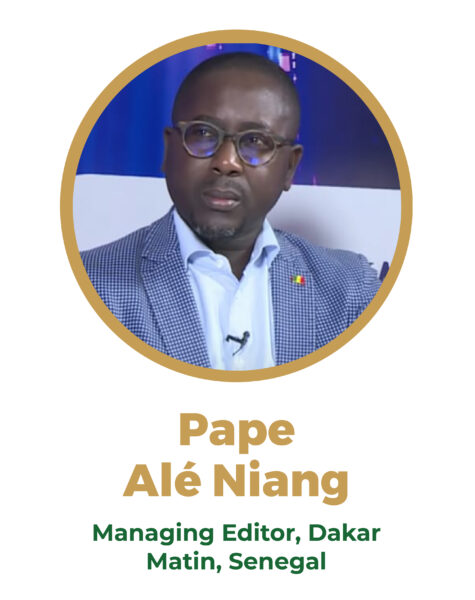
Pape Niang said a perceived ambition by President Macky Sall to seek a third mandate has made his government both unpopular and intolerant. Critical journalists and dissenting voices face serious human rights violations considering the manner in which they are arrested, detained, charged, and prosecuted. Senegalese are enduring repression of the kind unleashed by President Alpha Conde of Guinea on the media and civil society in his controversial push for a third term.
In Benin, the digital code No. 2017, Loi n° 2017-20 adopted in 2017 has become the instrument by which the authorities are silencing critical publications online. The case of Ignace Sossou who was arrested for a Twitter post in December 20, 2019 typifies the threat.
A similar situation prevails in Niger, where the digital code has claimed many journalists victims. The country is also battling with insurgency and journalists are under heavy military control while reporting in the affected areas like Tillabery (close to Burkina Faso), Tahoua (Close to Mali), and Diffa (Close to Nigeria). One might need authorization before conducting any interview.
The light of these challenges, the participants made the following recommendations:
To Journalists
- Build solidarity among themselves, create a sub-regional safety network and mount a region-wide push-back whenever a media professional is attacked
- Create a coalition and strong network of media rights organisations and press unions to pressurise decision makers, hold public officials accountable and ensure perpetrators of abuses against journalists are brought to book.
- Educate and sensitize the citizenry on the importance and value of critical and decent accountability journalism
To Media Owners and Media Development Organisations
- Build the capacities of journalists in terms of physical safety as well as digital safety and security
- Report abuses against employees and pursue justice to its logical conclusion
- Provide psychological support to journalists who are traumatised by threats, detention and physical attacks
To Governments
- Demonstrate commitment to protecting the safety of journalists by condemning attacks on journalists and ensuring effective investigations and prosecution
- Promote a culture of tolerance by exercising the right of rejoinder to critical publications rather than resorting to arrests, threats and physical attacks
To International Bodies
- Provide the necessary support to the governments of Mali, Burkina Faso and Niger to overcome the challenge of extremist violence in order to restore peace
- Use all diplomatic means to prevail on the governments of these countries to roll back the restriction of the civic space in their countries
- Provide safe haven, legal defense support and digital security training to journalists




